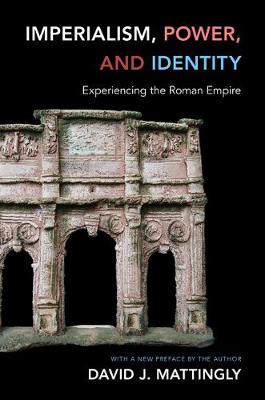Despite what history has taught us about imperialism's destructive effects on colonial societies, many classicists continue to emphasize disproportionately the civilizing and assimilative nature of the Roman Empire and to hold a generally favorable view of Rome's impact on its subject peoples. Imperialism, Power, and Identity boldly challenges this view using insights from postcolonial studies of modern empires to offer a more nuanced understanding of Roman imperialism. Rejecting outdated notions about Romanization, David Mattingly focuses instead on the concept of identity to reveal a Roman society made up of far-flung populations whose experience of empire varied enormously. He examines the nature of power in Rome and the means by which the Roman state exploited the natural, mercantile, and human resources within its frontiers. Mattingly draws on his own archaeological work in Britain, Jordan, and North Africa and covers a broad range of topics, including sexual relations and violence; census-taking and taxation; mining and pollution; land and labor; and art and iconography.
He shows how the lives of those under Rome's dominion were challenged, enhanced, or destroyed by the empire's power, and in doing so he redefines the meaning and significance of Rome in today's debates about globalization, power, and empire. Imperialism, Power, and Identity advances a new agenda for classical studies, one that views Roman rule from the perspective of the ruled and not just the rulers.
- ISBN13 9781400848270
- Publish Date 5 December 2013 (first published 27 September 2010)
- Publish Status Active
- Publish Country US
- Imprint Princeton University Press
- Format eBook
- Pages 376
- Language English
- URL http://degruyter.com/search?f_0=isbnissn&q_0=9781400848270&searchTitles=true
